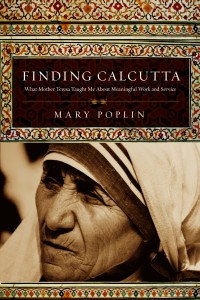
Probes:
- How would you articulate the gulf between a secular legacy, one of the world’s primary measures of a life’s work, and faithful fulfillment of Christian calling?
- How have you received affirmation/fulfillment in the blessing of Christ’s call and following Christ’s call?
Defining legacy
1. Law. a gift of property, especially personal property, as money, by will; a bequest
2. anything handed down from the past, as from an ancestor or predecessor: the legacy of ancient Rome — From Dictionary.com.
The world focuses on what can be experienced directly – what is seen. It is a great temptation to make that the measuring stick of our life’s work, our impact on the world. We are called to trust in God with a belief that he is working through us toward what He knows we can and will become eternally.
There is a Christian legacy for those who know and follow God. Abram’s calling shows this in God’s promises (Genesis 12:1-3).
Absent God, it is all meaningless
The writer of Ecclesiastes reminds us that the earthly return on our life’s experiences and labor is not ultimately satisfying. True satisfaction is not found in wisdom, accomplishments, or life’s pleasures. Furthermore, those who achieve or lay claim to these in their lifetimes, do not keep them. Heirs inherit wealth. The successor in a job may change the way things have always been done or simply ride out the good work of his/her predecessor for a number of years. Our faith in God does make a difference in who we are. We frame and navigate the “here and now” by the Light of the Eternal One revealed by the Word.
Now all has been heard; here is the conclusion of the matter: Fear God and keep his commandments, for this is the duty of all mankind. For God will bring every deed into judgment, including every hidden thing, whether it is good or evil (Ecclesiastes 12:13-14).
The Struggle to Leave a Legacy
Although we may agree that there is no meaningful legacy apart from our salvation through Christ and calling to serve God, we no doubt wrestle with society’s lack of encouragement to pursue most anything that lasts a lifetime or beyond one’s life. Even one’s “fifteen minutes of fame” has become cliche. In the practical area of material possessions, we buy things that are planned to wear out or be obsolete in what seems like shorter and shorter periods of time.
Jesus the Christ in the parable of the rich fool, Luke 12:15-21, challenges the listener to be “rich toward God.” The Christ follower’s legacy of a life lived faithfully, celebrated in passages such as 2 Timothy 1:3-5 and Hebrews 11:1-12:29, imparts blessing by the rippling out of loving God and loving neighbor. With regard to our current series:
- Mother Teresa’s Christ-centered ministry with the poorest of the poor through the Missionaries of Charity continues. Christ’s impact through her on those like Mary Poplin is found worldwide – and even outside of the church (for example, Christopher Hitchens). FYI: A short video on the legacy of Mother Teresa posted here.
- Mary Poplin’s Christ-centered life and testimony impacts academic communities and the wider society.
- Closer to home, we know through personal experience in our own lives the legacy of our spiritual forerunners on our campus, in our local congregation, in our community . . .
Eyes toward the Caller and the Eternal
Calling must be distinguished from our occupation. We tend to see and focus upon the “here and now,” but God calls us into eternal relationship. We steward the “here and now” in light of our walk with the Lord. Those who rest their identity In Christ Alone (their first love) by “leaving” their homes, father and mother, brothers and sisters become rich in he Kingdom of God (Matthew 19:16-30). God’s purpose is the eternal. Where do you find your focus?
A text for your prayerful consideration: Psalm 1:1-6.
Next (and final) post in the series: Finding Calcutta: An “Advent”-ure.

Note: Genesis of the series: You’ll notice the influence of Head, Heart & Hands, Os Guiness’ “The Call: Finding and Fulfilling the Central Purpose of Your Life,” and “Why Christian Apologetics?”* As with the Head, Heart & Hands series, the material is drawn from an adult elective at Elizabethtown Brethren in Christ Church (EBIC) facilitated by Kevin Milligan in coordination with the author speaking for our Christian Scholar Series (an EBIC-ESN partnership). In Spring 2011, Mary Poplin spoke in Pittsburgh, South Central PA, and Baltimore as part of an ESN partnership with Undergraduate Ministry and Graduate & Faculty Ministry. To God be the glory!
*To skim or not to skim: A ‘case’ study of “Christian Apologetics” and Why Christian Apologetics – Hell on Christian Apologetics: A Comprehensive Case for the Biblical Faith (IVP. 2011). More posts on topic coming.
Tom enjoys daily conversations regarding living out the Biblical Story with his wife Theresa and their four girls, around the block, at Elizabethtown Brethren in Christ Church (where he teaches adult electives and co-leads a small group), among healthcare professionals as the Northeast Regional Director for the Christian Medical & Dental Associations (CMDA), and in higher ed as a volunteer with the Emerging Scholars Network (ESN). For a number of years, the Christian Medical Society / CMDA at Penn State College of Medicine was the hub of his ministry with CMDA. Note: Tom served with InterVarsity Christian Fellowship / USA for 20+ years, including 6+ years as the Associate Director of ESN. He has written for the ESN blog from its launch in August 2008. He has studied Biology (B.S.), Higher Education (M.A.), Spiritual Direction (Certificate), Spiritual Formation (M.A.R.), Ministry to Emerging Generations (D.Min.). To God be the glory!

Leave a Reply